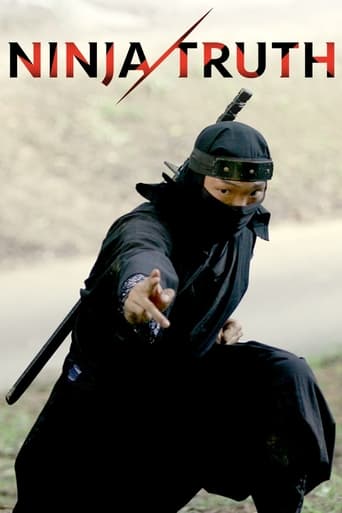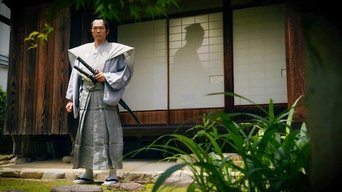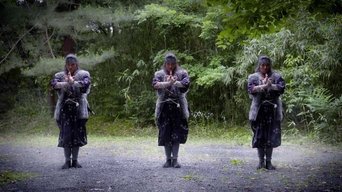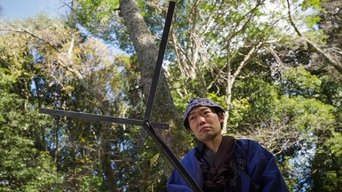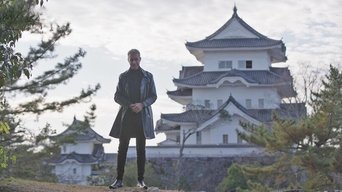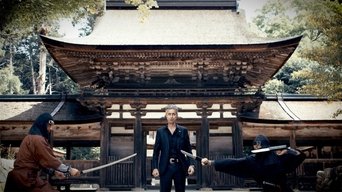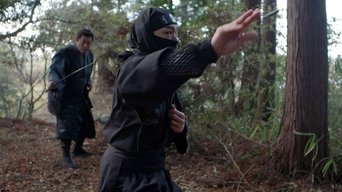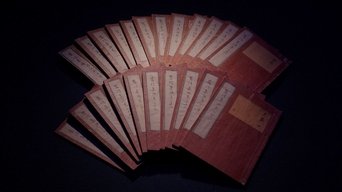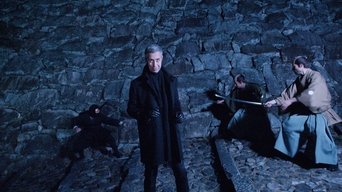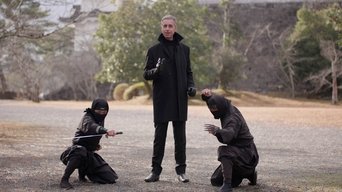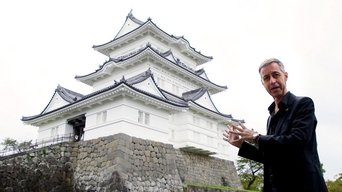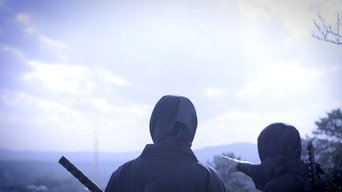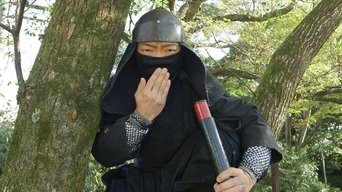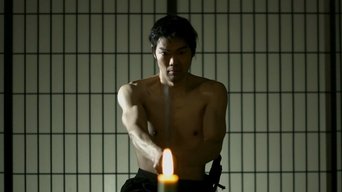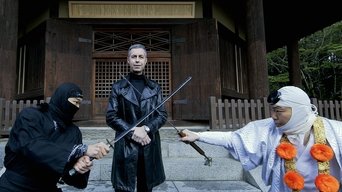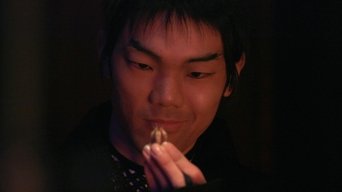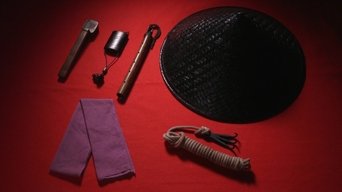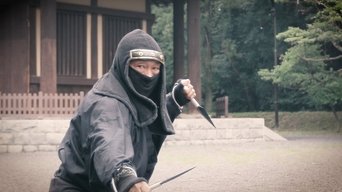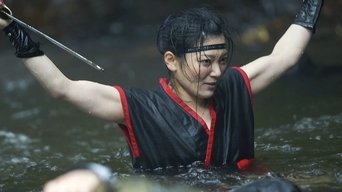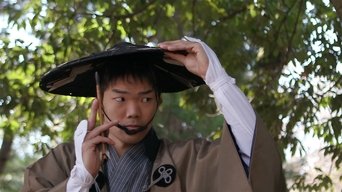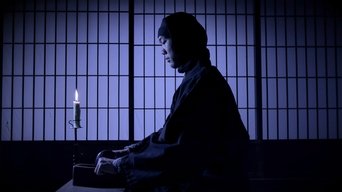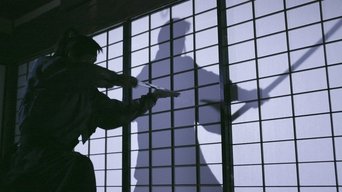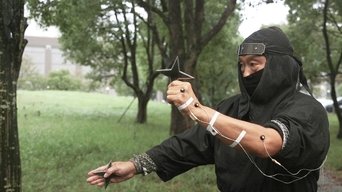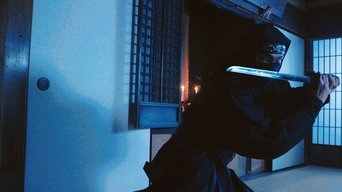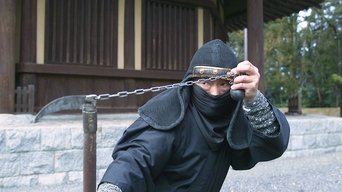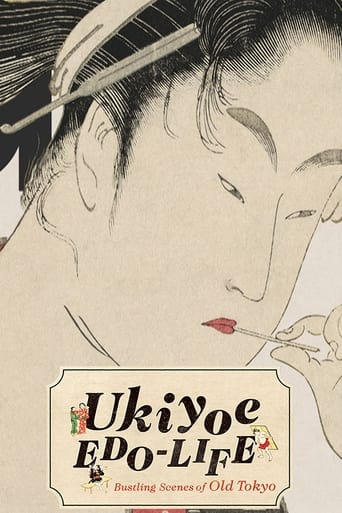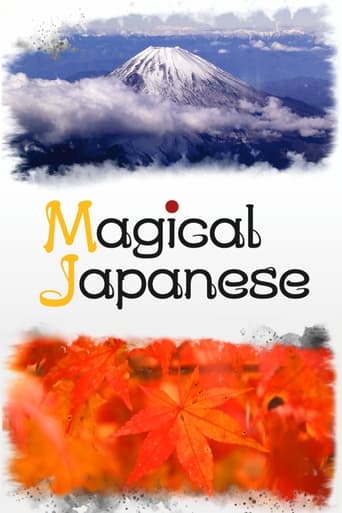NINJA TRUTH Season 1
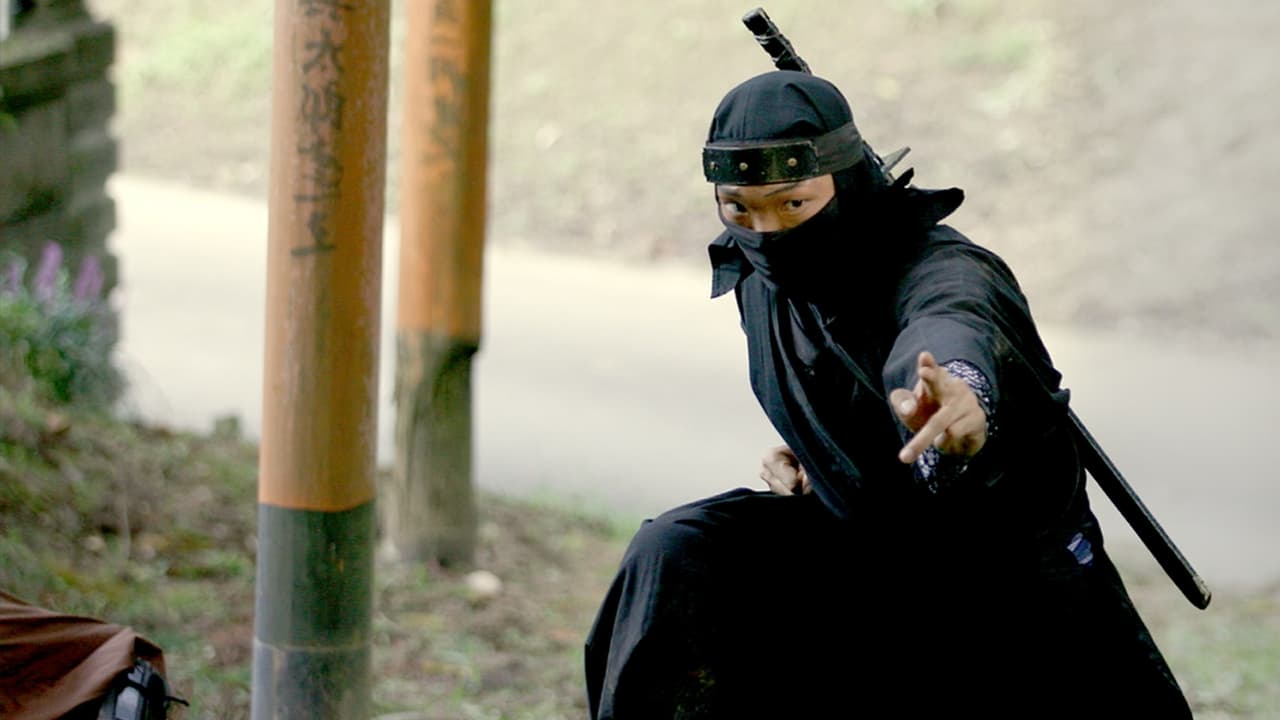
Ninja are now seen in popular media around the world. But as their profile rises, their reality gets muddied amid legends and fantasies. The truth about authentic ninja lies unknown, shrouded in mystery. This program carefully examines the fighting skills and tools used by actual ninja, and conducts experiments to determine the "Ninja Truth".
Watch NowWith 30 Day Free Trial!
NINJA TRUTH
2018
Ninja are now seen in popular media around the world. But as their profile rises, their reality gets muddied amid legends and fantasies. The truth about authentic ninja lies unknown, shrouded in mystery. This program carefully examines the fighting skills and tools used by actual ninja, and conducts experiments to determine the "Ninja Truth".
Watch Trailer
NINJA TRUTH Season 1 Full Episode Guide
Join us as we uncover the secrets of the ninjas who helped the Tokugawa shoguns to maintain order by collecting intelligence and investigating cases of unrest among the populace.
The modern image of the ninja—an agile shadow warrior with impressive techniques—is derived from a fictional ninja named Sarutobi Sasuke. Yet he, in turn, was inspired by the real-life Sanada ninja.
We meet with two specialists at the forefront of ninja research. In 2021, Fukushima Takamasa found the Kanrinseiyo. Known to exist but never seen before, it's said to be the source material for the famous ninja manual, the Bansenshukai. It reveals previously unknown information about the ninja, including group tactics, night infiltration methods and a new ninja tool. We also learn about the ancient manuscripts Professor Yuji Yamada discovered at the Library of Congress in the US.
Two men have been called "the last ninja." The first is Fujita Seiko, who lived over a hundred years ago. Introducing himself as the last ninja, he held demonstrations throughout Japan and researched ninja arts. Going over footage of Fujita, we discuss the principles he taught. The second is Kawakami Jinichi, who is still alive today. We introduce the training he's continued for over sixty years and scientifically analyze a ninja breathing technique called "okinaga" to determine its effect.
Ninja have often been depicted flying on large kites in manga and anime. Was such a feat really possible? With the help of an expert in fluid dynamics as well as a traditional Japanese kite maker, we'll put this legend to the test scientifically using a miniature kite. We'll also delve into the mystery of the ninja's little-known technique of using kites to carry firebombs that could set the enemy's buildings ablaze.
Along with Iga, the Koka region is synonymous with ninja. The Koka Ninja are often depicted in anime and movies as the arch rivals of the Iga Ninja or as villains. But what were they really like? In this episode, we explore the Koka region with Professor Yuji Yamada of Mie University, learning about the turbulent history of the Koka Ninja, from their stunning success at the battle of "Magari-no-Jin" to the disaster that culminated in the "Koka Yure." Their democratic practices and deep bonds to each other as well as their homeland reveal a rather different side, and bring us ever closer to the ninja truth.
Ninja tools of clay and stone were unearthed at sixteenth-century archaeological sites. They were clay makibishi and stone tsubute. However, iron-working techniques were already well established by this time. So why did the ninja use these materials? Iwata Akihiro from Saitama Prefectural Ranzan Historical Museum believes the ninja used them as a last resort. In this episode, we explore how these ninja tools came about and recreate clay makibishi to see if they'll stand up to the test.
The Bansenshukai is a compilation of ninja techniques from 49 Iga and Koka ninja schools. It covers everything from ninja principles to various ninja techniques and tools. However, the ninja passed it on from master to apprentice with the utmost secrecy. So how did it come to see the light of day? It turns out that it was due to an unfortunate event involving ninja during the Edo period. We examine this event and also get television's first look at scrolls said to be the oldest extant copy of the Bansenshukai.
The ninja art of escape, or tonsojutsu, frequently took advantage of the human psyche. We examine some ninja tactics and get a psychologist's perspective on them. In the latter half, we recreate a torinoko, a ninja tool that frequently appears in pop culture. Using the sparse information available, we experiment with varying blend ratios to smoke out the ninja truth.
While the ninja moved unseen throughout Japan, Iga, in present-day Mie Prefecture, has been called the birthplace of the ninja arts. Join Chris Glenn and Professor Yuji Yamada as they explore Iga and trace the Iga people's journey from armed farmers who absorbed Shugendo teachings to their emergence as ninja. In the latter half, they visit sites related to the Tensho Iga War—an event that won the Iga ninja nationwide acclaim—and explore the shadow tactics used by the ninja to strike terror into the numerically superior Oda army.
The Hojo clan was a warrior clan that ruled the Kanto region from the 15th to 16th century. Supporting their efforts to defeat enemies and maintain control was a mysterious group called the Fuma ninja. Their leader, Fuma Kotaro, is described in historical documents as a monster, and may have been the reason why they were so feared. We'll look at how the Fuma ninja took over castles and also guarded them for the Hojo clan.
Since ninja were engaged in espionage, they had to gather information and accurately convey it without anyone knowing. Typical means of information transmission included smoke signals, a cipher using knots in a rope, and special methods of transporting secret messages. But in the second half of the episode, we'll look at their ultimate method of concealing information: invisible ink! Find out how they did this, and follow Chris as he makes his own secret message with ninja techniques.
Although the ninja are known for working in the shadows, the early Edo period found them serving in one-hundred-man units. Join Chris Glenn and Professor Yuji Yamada as they explore Tokyo and visit sites associated with the ninja. Their tour―interspersed with reenactments―reveals the deep connection between the ninja and Edo, the old name for Tokyo.
The ninja are said to have been capable of remembering extensive details about the estates and castles they infiltrated. To learn how they were able to recall large amounts of information without taking notes, we take a look at some of the mnemonic devices mentioned in ninja documents. In the latter half of the program, we examine torches developed by the ninja. With the help of a pyrotechnician, we recreate a mizukakyo, or water-resistant torch, using ingredients of the time. Join us to see the experiment results!
Jumping down from 15-meter heights. Running 100 kilometers in a day. These are just some of the feats that the ninja were said to be capable of. And if these are true, how did they acquire their physical strength, agility and mental fortitude? We'll meet with the last true ninja to learn about their training methods, and analyze a traditional running style that could make a comeback.
The ninja had two modes of operation: Innin and Yonin. Innin covered assassinations, sabotage and other covert operations requiring stealth, while Yonin covered operations performed in the open that required cunning. We'll examine the two using reenactments and also reconstruct a "saotokikigane" to determine the truth about this obscure listening device.
Well-versed in astronomy, biology and other fields of natural science, the ninja used their knowledge of botany to create both poison and medicine. Poison's portability and efficacy made it an ideal weapon, and we'll use reenactments to examine how the ninja wielded it. We'll also visit a company in Koka that continues production of a medicine passed down by the ninja.
Like all famous movie spies, the ninja had a wide array of spy tools at their disposal, and the shinobi rokugu were six tools that were considered essential for any mission. These include the yatate, inro, uchitake, sanjakutenugui, amigasa and kaginawa. We'll examine the purpose of each tool using action-packed reenactments. We'll also scientifically analyze how to master the kaginawa.
The ninja employed a wide range of tools to accomplish their missions. In this episode, we introduce the kunai and examine what it was made of and how it was used. With the help of a leading ninja researcher, we also recreate and test the ikibukuro, a previously unknown tool that is said to have enabled the ninja to perform tasks underwater.
Before modern times, the ninja worked secretly in the shadows, and a particularly shadowy figure is the female ninja or Kunoichi. While often portrayed as female spies, we're left with only hints and speculations about them. Based on passages from the "Bansenshukai," perhaps the most famous ninja manual, we investigate the history, mode of operation, and psychological tactics of the Kunoichi. Our search takes us to Tomi, a city in Nagano Prefecture where a mysterious female group once resided.
The ninja used various tools and weapons on their secret missions. To protect themselves in dangerous situations, they used concealed weapons. Portable and hidden from view, some were even disguised as ordinary items. In this episode, we'll feature concealed weapons including the amigasa, kakute, shikomi-tessen, and how they were used. We'll also join a ninja expert and recreate hyorogan, the ultimate ninja ration, to learn the secrets behind its ingredients.
The ninja are said to have been proficient in the use of gunpowder long before guns were brought to Japan, and to have invented over 230 uses for it. In this episode, we'll introduce the toribikata, a weapon similar to a flamethrower that was used to fend off several attackers at once, and the hyakuraijyu, which created chaos by emitting a noise similar to a volley of gunshots. We'll also recreate the grenade-like hourokuhiya to determine its strength, and the daikokuhiya, a weapon frequently mentioned in the ninja training text Bansenshukai, to learn about how it was actually used.
The ninja were often given the important mission of infiltrating enemy territory and bringing back key information. Meanwhile, their own residences were cleverly rigged to thwart intruders and hide the information they'd acquired. In this episode, we'll examine the secrets of their residences, including trap doors, lookout posts, sword compartments, and hanging ladders, using action-packed reenactments. We'll also examine the psychological effect of these residences.
The ninja employed over 400 special weapons and tools to accomplish their missions, and the shuriken is undoubtedly one of the most famous. In this episode, we'll examine not just how the shuriken was thrown, but ninja techniques for throwing it with a string attached, and using it defensively. The ninja also devised various throwing techniques such as yoko-uchi, hon-uchi and gyaku-uchi. We'll use cutting-edge science to examine their uses, and use the shuriken to draw closer to the ninja truth.
The ninja used short swords when faced with imminent danger, such as in enemy territory. We'll see when these were used, and how they differed from warrior's katana swords. Also, ancient ninja literature describes a water-crossing device known as "mizugumo." We'll do an experiment, constructing "mizugumo" exactly as described, to see if it really worked. And we'll get a ninja expert's opinions about how it could be improved today, and try that too! Join us to see the results!
The ninja had over 400 distinctive tools and weapons to fight with and defend themselves. The most familiar was one called the "kusari-gama," a chain and sickle that could do serious damage to an opponent. But it raises questions about how they used it when fighting, and how they were able to conceal it. The ninja were also ingenious at hiding themselves. We'll do an experiment to see if those hiding techniques really worked, and we'll look at a brand-new technology for hiding people.
Free Trial Channels
Seasons


